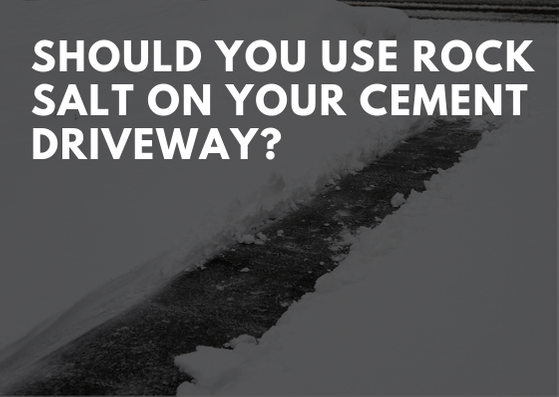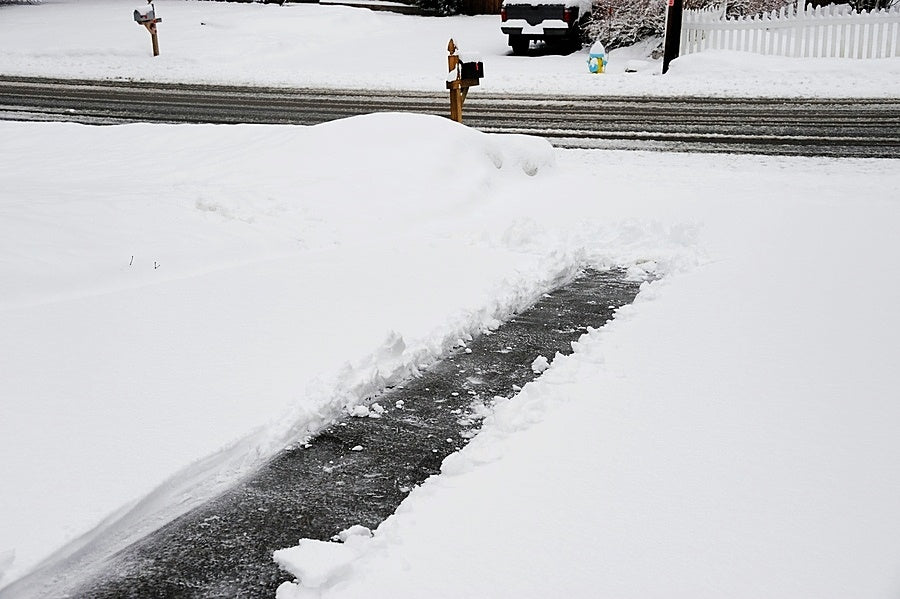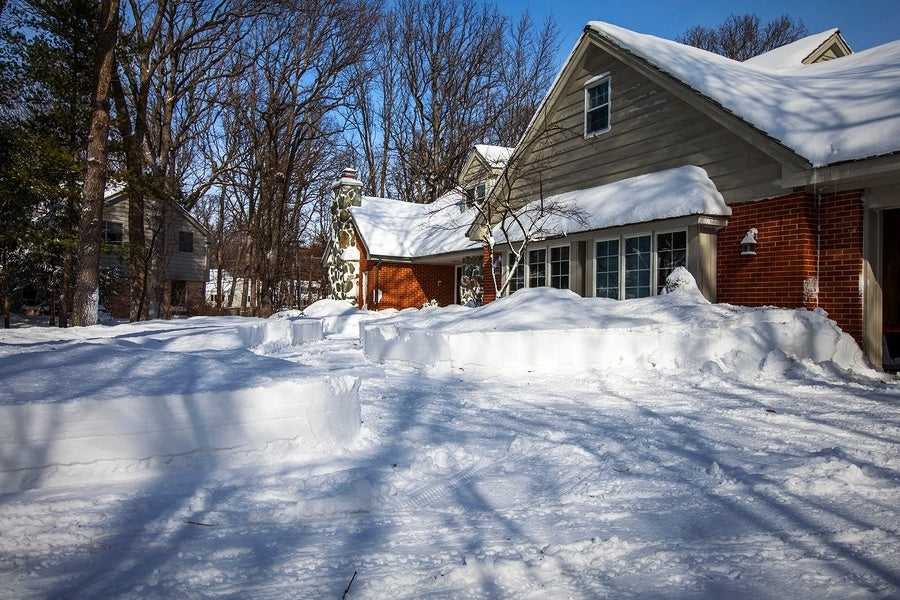
In wintertime, many people use rock salt as their “go-to” method for preventing snow build-up and for de-icing. After all, rock salt is relatively inexpensive, fairly easy to apply, easy to come by, and has been commonly used for a long time.
Considering that a driveway is a primary element of a home’s presentation and it can be an expensive feature to both construct and repair, it’s worth taking the time to ensure that your snow removal method isn’t actually causing damage.
Rock salt can cause significant damage to concrete, but what about cement? To answer this question we need to understand the difference between cement and concrete.
Cement vs. Concrete
Cement is a component of concrete. When it’s blended with water cement makes a paste-like material, and when that paste is mixed with aggregates such as sand and gravel the result is concrete. Cement’s composition makes it a great binding agent but it is prone to cracking. Concrete lasts significantly longer than cement, which is a much less durable material.
Consider this: Rock salt can penetrate the porous surface of concrete and become lodged inside the concrete. Not only does this cause deterioration due to rock salt’s acidic nature, but salt also draws water into the concrete and causes it to retain up to 10% more water. After going through several freeze-thaw cycles during the course of a winter, this accumulated water, which expands as it freezes, causes the concrete to crack and chip.
Given that cement is far less durable than concrete, it stands to reason that the use of rock salt on a cement driveway will be even more damaging. Professional driveway repair can be costly, and if done on your own it involves:
- Cleaning
- Removing loose debris
- Mixing materials together
- Filling cracks, usually twice and 24 hours apart
- A project that will typically take a couple of days
- Applying a sealant
To save time, effort, potential headache, and unnecessary costs, the best strategy would be to avoid damage from rock salt at the “get-go.” Here are several other options to consider for removing snow from your cement driveway:
Chemical de-icers
These include calcium chloride, magnesium chloride, potassium chloride, urea, liquid potassium-acetate and calcium-magnesium acetate. Aside from not damaging cement and concrete in the way that rock salt does, these de-icing alternatives have other advantages. For instance, they are eco- and plant-friendly, and are effective at lower temperatures.
Mechanical methods
Removing snow by shoveling it, hiring someone else to do it, or using a snowblower are options to consider especially if you can get to the snow shortly after it falls. Of course, with these options there are costs to consider, potential injuries to avoid, and other possible hassles.
Traction-boosting materials
While sawdust or sand by themselves won’t de-ice your driveway, using them in conjunction with a de-icer can be an effective strategy for maintaining a clear driveway and improving its traction. However, once spring arrives this approach leaves behind a slushy, messy driveway full of soggy material.
Heated driveways
Installing a heated driveway is an expensive option but comes with several advantages. These include ease of use, convenience, low to no environmental impact, increased safety, and improved property value.
Heated snow melting mats
Heated snow melting mats are an excellent, efficient and cost-effective method for keeping your cement driveway clear of snow and ice. Heated driveway mats are specifically designed to withstand the weight of a car, plug into a standard outlet using a moisture-resistant cord, and can melt snow and ice in a matter of hours or minutes depending on the level of heat and amount of snow. They’re also energy efficient and are easily stored during warmer weather.
While rock salt may be the poorer choice for removing snow from your cement driveway, choosing a better option not only can keep you safe while coming and going this winter, but it can save you time, effort and money on avoidable driveway repairs when the warm weather returns.

